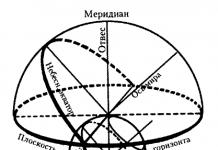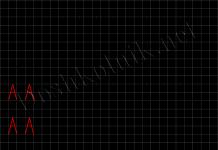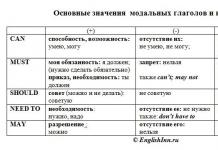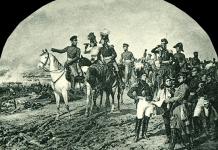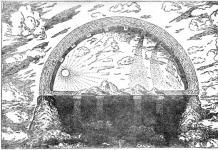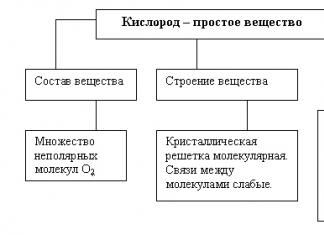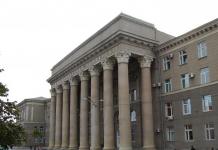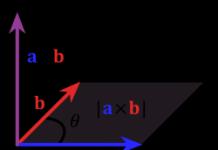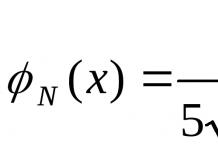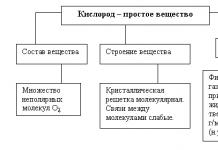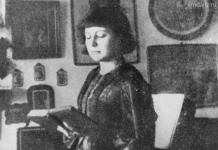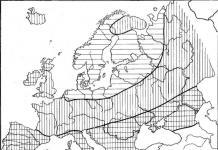In Germany in 1920, the National Socialist German Workers' Party (Nationalsozialistische Deutsche Arbeiterpartei (NSDAP), in Russian - NSDAP, or NSRPG) began to exist, and since 1933 it has become the only legal ruling party in the country. By decision anti-Hitler coalition after the defeat in 1945, it was disbanded, the Nuremberg trials declared its leadership criminal, and its ideology unacceptable due to the threat to the existence of humanity.
Start
In 1919, the German Workers' Party (DAP) was founded in Munich by railway mechanic Anton Drexler on the platform of the Free Workers' Committee for Peace (Freien Arbeiterausschuss für einen guten Frieden), which was also founded by Drexler. His mentor, Paul Tafel, director of the company and leader of the Pan-German Union, presented the idea of creating a nationalist party that would rely on the workers. Since its creation, there have already been about 40 members under the wing of the DAP. The political party's program was not yet sufficiently developed.
Adolf Hitler joined the ranks of the DAP already in September 1919, and six months later he announced the “Twenty-Five Points Program,” which entailed a change of name. It now finally acquired its name as the National Socialist German Workers' Party. Hitler did not come up with innovations himself; National Socialism had already been proclaimed at that time in Austria. In order not to copy the name of the Austrian party, Hitler proposed the Socialist Revolutionary Party. But he was convinced. Journalism picked up the idea, shortening the abbreviation to “Nazi”, since the name “social” (socialists) already existed, by analogy.

Twenty five points
This fateful program, approved in February 1920, will have to be presented briefly.
- Greater Germany must unite all Germans on its territory.
- To achieve a waiver of all the terms of the Versailles Treaty, thereby confirming Germany’s right to independently build relations with other nations.
- Lebensraum: demand additional territory to produce food and settle the increasing German population.
- Grant citizenship based on race. Jews will not be German citizens.
- All non-Germans can only be guests.
- Official positions must be occupied by people with appropriate qualifications and available abilities; nepotism of any kind is unacceptable.
- The state is obliged to provide conditions for the existence of citizens. If there are insufficient resources, all non-citizens are excluded from the list of beneficiaries.
- Stop the entry of non-Germans into Germany.
- All citizens have not only the right, but also the obligation to participate in elections.
- Every German citizen must work for the common good.
- Illicit profits are confiscated.
- All profits gained from the war are confiscated.
- Nationalization of all large enterprises.
- Workers and employees participate in the profits of large industries.
- The old-age pension must be decent.
- The need to support traders and small producers, transferring all large stores to them.
- Reforms in land tenure, stopping speculation.
- Speculation is punishable by death, and all criminal offenses are mercilessly punished.
- Replacement of Roman law with German law.
- Reorganization educational system Germany.
- State support for motherhood and encouragement of youth development.
- Universal conscription national army instead of professional.
- All means mass media Only Germans should have jobs in the country; non-Germans are prohibited from working there.
- Religion is free, except for religions that are dangerous to Germany. Jewish materialism is prohibited.
- Strengthening the central government to effectively implement legislation.

Parliament
On April 1, 1920, Hitler’s party became official, and since 1926, all its provisions have been recognized as inviolable. From 1924 to the party gained strength and quickly strengthened. Parliamentary elections show an increase in the German vote from year to year.
If in May 1924 the National Socialist German Workers' Party gained only 6.6% in the elections, and in December even less - only 3%, then already in 1930 the votes became 18.3%. In 1932, there was a significant increase in adherents of National Socialism: in July, 37.4% voted for the NSDAP, and finally, in March 1933, almost 44% of the votes were received by Hitler’s party. Since 1923, NSDAP congresses have been held regularly, there were ten of them in total, and the last one took place in 1938.

Ideology
Totalitarianism combines elements of socialism, racism, nationalism, anti-Semitism, fascism and anti-communism. That is why the National Socialist German Workers' Party declared its goal to build an Aryan state with racial purity and vast territory, which has everything necessary for the well-being and prosperity of the thousand-year Reich.
Hitler first made a report to the party in October 1919. Then the history of the party was just beginning, and the audience was small - only one hundred and eleven people. But the future Fuhrer captivated them completely. In principle, the postulates in his speeches never changed - the emergence of fascism had already occurred. At first, Hitler talked about how great he saw Germany and declared its enemies: Jews and Marxists, who doomed the country to defeat in the First World War and subsequent suffering. Then they spoke about revenge and about German weapons that would eliminate poverty in the country. The demand for the return of the colonies, contrary to the “barbaric” Treaty of Versailles, was reinforced by the intention to annex many new territories.
Party structure
The National Socialist German Workers' Party was built on a territorial principle, the structure was hierarchical. Absolute power and unlimited powers belonged to the party chairman. The first head from January 1919 to February 1920 was the journalist Karl Harrer. He took an active part in the creation of the DAP. He was succeeded by Anton Drexler, who a year later became honorary chairman of the party when he handed over the reins of power to Adolf Hitler in July 1921.
The party apparatus was directly led by the Deputy Fuhrer. From 1933 to 1941, this position was held by the Deputy Fuhrer who created the Headquarters, who immediately in 1933 headed the transformation of the Headquarters into the Party Chancellery in 1941. Since 1942, Bormann has been the Fuhrer's secretary. In 1945, Hitler wrote a will in which he established a new party post - a minister for party affairs appeared, who became its head. Bormann did not remain at the head of the NSDAP for long - about four days, from the thirtieth of April until the signing of the surrender on the second of May.

His fight
When the Nazis attempted a coup, Bavarian Commissioner Gustav von Kahr issued a decree banning the National Socialist Party. However, this had no effect; the popularity of both the party and its Fuhrer grew at a tremendous pace: already in 1924, forty Reichstag deputies belonged to the NSDAP. In addition, party members hid under other names of newly created organizations. This also applies to the Greater Germanic People's Community and People's Bloc, and National Socialist liberation movement, and many other parties with small numbers of members.
In 1925, the NSDAP again reached a legal position, but its leaders disagreed on purely tactical issues - how much socialism and how much nationalism should this movement contain. Thus, the party was divided into two wings. The entire year of 1926 passed in splits and fierce struggle between the right and left. The party conference in Bamberg was the climax of this confrontation. Then, on May 22, 1926, without overcoming the contradictions, Hitler was nevertheless elected as their leader in Munich. And they did it unanimously.
Reasons for the popularity of Nazism
In Germany, the severity of the economic crisis in the early twenties of the twentieth century was at its peak, and discontent among all segments of the population grew by leaps and bounds. Against this background, it was not so difficult to seduce the masses with the ideas of nationalism and militarism, proclaiming a race of masters and the historical mission of Germany. The number of adherents and sympathizers of the NSDAP grew rapidly, attracting thousands and thousands of boys from various classes and estates into the ranks of the Nazis. The party developed dynamically and did not disdain populist techniques when recruiting new followers.
The cadres that made up the backbone of the NSDAP were very impressive: for the most part they were members of paramilitary associations and veterans' unions dissolved by the government (the Pan-German Union and the German People's Union of Offensive and Defense, for example). In January 1923, at the first party congress, Hitler performed the ceremony of consecrating the NSDAP banner. At the same time, Nazi symbols appeared. After the end of the congress, the first torchlight procession of six thousand SA stormtroopers took place. In the fall, the party already numbered more than 55 thousand people.

Preparing to take over the world
In February 1925, the previously banned newspaper Völkischer Beobachter, the printed organ of the NSDAP, began publishing again. At the same time, Hitler made one of his most successful acquisitions - Goebbels came over to his side and founded the Angrif magazine. In addition, the NSDAP received the opportunity to broadcast its theoretical research through the National Socialist Monthly. In July 1926, at the Weimar NSDAP congress, Hitler decided to change party tactics.
Instead of terrorist methods of struggle, he recommended that political opponents be squeezed out of all administrative structures and elected to the Reichstag and land parliaments. This had to be done, of course, without losing sight of the main goal - the eradication of communism and the revision of the decisions of the Versailles Treaty.
Raising capital
Using all sorts of tricks, Hitler managed to interest the most significant financial and industrial figures in Germany in the NSDAP program. The party was trusted and joined by such bosses as Wilhelm Kappler, Emil Kirdorff, the editor of the stock exchange newspaper Walter Funk, the chairman of the Reichsbank Hjalmar Schacht and many, many of those who, in addition to their own membership, which was good PR for the people, contributed to the party fund huge sums of money. The crisis deepened, unemployment grew uncontrollably, the Social Democrats did not justify the people's trust. Majority social groups lost ground under their feet, the very foundations of their existence collapsed.
Small producers despaired, blaming government democracy for their woes. Many saw a way out of this situation only in strengthening power and a one-party government. Both bankers and entrepreneurs of the largest scale willingly joined these demands and subsidized the NSDAP in election campaigns. Everyone associated national and personal aspirations with this party and personally with Hitler. For the rich, this was primarily an anti-communist barrier. In July 1932, the first results were summed up: 230 mandates in the Reichstag elections against 133 for the Social Democrats and 89 for the Communists.
Divisions
In 1944, the party included nine Angeschlossene Verbände - affiliated unions, seven Gliederungen der Partei - party divisions and four organizations. The unions that joined the NSDAP consisted of lawyers, teachers, office workers, doctors, technicians, the War Victims' Union, the Public Welfare Union, the Labor Front and the Air Defense Union. They were independent organizations within the party structure and had legal rights and property.
The political party in Germany had divisions: Hitler Youth, SS (security detachments), SA (assault detachments), unions of German girls, associate professors, students, women (NS-Frauenschaft), mechanized corps. The organizations that Adolf Hitler's party joined were populous, but not too significant, these are: the cultural society, the union of large families, German communities (Deutscher Gemeindetag) and “Labour of German women” (Das Deutsche Frauenwerk).
Administrative division
Germany was divided into thirty-three Gaue - party areas coinciding with electoral districts. Their number increased over time: by 1941 there were already 43 Gau, plus the foreign organization of the NSDAP. The Gau were divided into districts, and those into local branches, then into cells and blocks. Up to 60 houses were combined in the block.
Each party organizational unit was headed by a Gauleiter, Kreisleiter and the like. Accordingly, party apparatuses were created locally; officials had insignia, titles and uniforms, which were decorated with Nazi symbols. The color of the buttonholes indicated the affiliation and position held in the structure of the organization.
Branches
The NSDAP was subordinated not only to its own party members, but also to the party in the territories of Germany's allies and in occupied countries. In Italy, until 1943 he led the National Fascist Party (it is believed that the cradle of fascism was there), after which it turned into the Republican Fascist Party. In Spain there was a Spanish phalanx completely dependent on the NSDAP.
Similar organizations also functioned in Slovakia, Romania, Croatia, Hungary, Czechoslovakia, the Netherlands, and Norway. And Belgium and Denmark literally had branches of the NSDAP on their territory, even the Nazi symbols coincided almost completely. It should be noted that all of the listed states where Nazi parties were created participated in World War II on the side of Germany, and many representatives of all these countries ended up in Soviet captivity.

Defeat
The unconditional surrender of 1945 put an end to the existence of the most inhumane party ever created by mankind. The NSDAP was not only dissolved, but also banned everywhere, property was completely confiscated, the leaders were convicted and executed. True, many party members still managed to escape to South America, the Spanish ruler Franco helped in this by providing both ships and subsidies.
By the decision of the anti-fascist coalition, Germany was completely subjected to the process of denazification; active members of the NSDAP were subjected to special checks: dismissal from the leadership or from educational institutions- this is still a very small price to pay for what fascism has done on earth.
Post-war time
In Germany in 1964, fascism again raised its head. The Nationaldemokratische Partei Deutschlands appeared - the National Democratic Party of Germany, which positioned itself as the successor to the NSDAP. For the first time since World War II, neo-Nazis came close to the Bundestag - 4.3% in the 1969 elections. Before the NPD, there were other neo-Nazi formations in Germany, Römer’s Imperial Socialist Party, for example, but it should be noted that none of them achieved noticeable results at the federal level.
The name of the party before 1920 was the German Workers' Party. "Deutsche Arbeiterpartei".
Hitler himself explained the name of his party this way:
Socialism is the doctrine of how to care for the common good. Communism is not socialism. Marxism is not socialism. Marxists stole this concept and distorted its meaning. I will snatch socialism from the hands of the “socialists.” Socialism is an ancient Aryan, Germanic tradition.
The National Socialist German Workers' Party is a radical right-wing political party in Germany created by combining Anton Drexler's Independent Workers' Committee (established on March 7, 1918 as a branch of the North German Peace Association) and Karl Harrer's Political Workers' Union (established in 1918) into the German Workers' Party (Deutsche Arbeiterpartei, abbr. DAP). At a meeting in the Munich beer hall "Hofbräuhaus" on February 24, 1920, Hitler announced a 25-point program that he himself had written. At the same meeting, it was decided to change the name of the party: instead of the German Workers' Party - the National Socialist German Workers' Party. All 25 points were approved by the meeting, and the program became the official program of the party. In 1921, Hitler was only a member of the party's steering committee. His duties included campaigning and attracting new people to join the party. But in the summer of this year, Hitler decided that it was time to remove party chairman Anton Drexler and take his leadership position. Hitler differed with Drexer in that he wanted to unite the party with the socialist party. This did not suit Hitler at all. Drexer's supporters, when Hitler went to Berlin for a few days, decided to get rid of him as a party member. Hitler, returning to Munich, himself demonstratively left the party and handed over his case to the consideration and trial of party members. Drexer did not incite his colleagues to be strict with Adolf Hitler. Hitler re-joined the NSDAP on July 26, and on July 29 he was elected chairman of the party. This happened at an emergency management meeting. Drexer then left the party. At the same meeting, naturally at the instigation of Hitler, there was an innovation - the law of the Fuhrer, which was based on the unconditional subordination of all party members to the Fuhrer, and in this case, to Hitler himself. At this meeting, a new Charter was adopted with this “Führer principle”. In 1922, he appeared in the party new person. This is Julius Streicher, who is known as an ardent anti-Semite and anti-communist, famous for his rude disposition. He was a very active Nazi. He managed to persuade the entire workers' union to join this party, after which the number of NSDAP members increased significantly. The party holds many rallies and by the end of 1922 there were already 22,000 people in it. Soon, in January 1923, the first congress of the NSDAP took place. Everyone was amazed by the aesthetic design of this gala event. Posters, symbols... But the most touching thing was Hitler’s consecration of the party banner and the procession of 6,000 stormtroopers. (The party, to protect the Fuhrer and party events, subsequently to carry out repression, persecution, murder, occupation... formed a stormtrooper guard, which was called the SA, and then the more elite SS and Gestapo guards). By the end of 1923, the party already had more than 55,000 members. On May 1, 1923, armed NSDAP stormtroopers gathered on the Oberwiesenfeld field in Munich. There, the commander of the radical organization, Captain Rem, spoke to them. Rem made it clear to Hitler that the time for rebellion had not yet come. On May 1st and 2nd, a celebration took place in Nuremberg. German day" General Ludendorff addressed the audience. The Union of Struggle was also formed there, in which all right-wing radical parties in Germany united. Hitler becomes the leader of this alliance. On September 26, 1923, the Bavarian government declared a state of emergency, then prohibited a number of mass demonstrations planned by the NSDAP. The separatists are planning to stage a putsch on November 11th. Hitler accidentally learned that on November 8, members of the Bavarian Cabinet gathered in the largest Munich beer hall (accommodating more than 2,000 people), the Bürgerbaukeler. Hitler rushed there like a bullet. This is how he became a participant in the anti-government Beer Hall Putsch (anti-government coup), which took place on November 9, 1923. The putsch failed, its organizers and participants, including Hitler, were arrested and imprisoned. Some managed to hide from the police.
In 1925, Hitler was released from prison and began to restore the party, since during his imprisonment the number had greatly decreased. Everything had to almost start all over again. In prison, he became friends with a new young member of his party, Rudolf Hess, also convicted of the putsch. Rudolf Hess became his faithful assistant for many years.
Hitler was looking for points of mutual understanding with major industrialists and financial figures. He tried in every possible way to attract them to his party. They were not happy with the policies of the Social Democrats. And, seeing a difficult political and economic situation for themselves, they decided to support the Nazi party. They saw it primarily as protection against communism.
Program (25 points)
- We demand the unification of all Germans on the basis of the right of self-determination of peoples in Greater Germany.
- We demand equal rights for the German people on an equal basis with other nations and the repeal of the provisions of Versailles and Saint-Germain peace treaties.
- We demand living space: territories and lands (colonies) necessary to feed the German people and to resettle the surplus German population.
- A citizen of Germany can only be one who belongs to the German nation, in whose veins German blood flows, regardless of religious affiliation. No Jew can be classified as a member of the German nation and be a citizen of Germany.
- Anyone who is not a German citizen can live in Germany as a guest, with the rights of a foreigner.
- The right to vote and to be elected should belong exclusively to German citizens. We therefore demand that all positions at any level - imperial, regional or municipal - be filled only by German citizens. We are fighting against the corrupting parliamentary practice of holding office solely on the basis of party affiliation without regard to character and ability.
- We demand that the state commit itself to ensuring that German citizens have the best possible work and life opportunities. If it is impossible to feed the entire population of the state, then persons of alien nations (not citizens of the state) must be expelled from the country.
- All further immigration to Germany of persons of non-German race must be suspended. We demand that all persons of non-German race who immigrated to Germany after August 2, 1914, immediately leave the Reich.
- All citizens of the state must have equal rights and responsibilities.
- The first duty of every German citizen will be to do work, mental or physical. The activities of each citizen should not diverge from the interests of society as a whole, should take place within the framework of society and, therefore, be directed for the common benefit.
- We demand a declaration of ruthless war on those whose activities harm common interests. Crimes against the nation committed by moneylenders, speculators, etc. should be punishable by death, regardless of race or creed. We demand the abolition of unearned income and interest slavery.
- In view of the enormous loss of life and property demanded of the nation by every war, personal enrichment during war must be considered a crime against the nation. We therefore demand the ruthless confiscation of war profits.
- We demand the nationalization of industrial trusts.
- We demand the participation of workers and employees in the profits of large commercial enterprises.
- We demand a significant increase in pensions for the elderly.
- We demand the creation of a healthy middle class and its preservation, the immediate removal of large stores from private ownership and their rental at low prices to small producers, the strictest consideration to ensure that small producers receive public support everywhere - at the state level, in the lands or communities.
- We demand land reform in accordance with the interests of the German nation, the adoption of a law on the gratuitous confiscation of land for public needs, the cancellation of interest on mortgages, and the prohibition of land speculation.
- We demand a ruthless fight against crime. We require you to enter death penalty for criminals against the German people, moneylenders, speculators, etc., regardless of social status, religion and nationality.
- We demand the replacement of Roman law, which serves the interests of the materialist world order, with German popular law.
- To ensure that every capable and diligent German has the opportunity to obtain higher education and take a leading position, the state must take care of the comprehensive, broad development of our entire system of public education. The programs of all educational institutions must be brought into line with the requirements of practical life. From the very beginning of the development of a child’s consciousness, the school must purposefully teach students to understand the idea of the state. We demand that especially talented children of poor parents, regardless of their position in society and occupation, receive an education at the expense of the state.
- The state must direct all efforts to improve the health of the nation: ensure the protection of motherhood and childhood, prohibit child labor, improve the physical condition of the population by introducing compulsory games and physical exercise, support for clubs involved in physical development youth.
- We demand the elimination of mercenary troops and the creation people's army.
- We demand an open political struggle against deliberate political lies and their spread in the press. In order to create a German national press, we demand that:
- all editors and publishers of German newspapers would be German citizens;
- Non-German newspapers must obtain special permission from the state to publish. However, they cannot be published in German;
- non-German citizens would be prohibited by law from having any financial interest or influence in German newspapers. As punishment for violations of this law, such a newspaper will be banned and foreigners will be immediately deported. We demand the announcement of an irreconcilable struggle against literary and cultural movements that have a corrupting influence on our people, as well as a ban on all activities aimed at this.
- We demand freedom for all religious denominations in the state as long as they do not pose a threat to it and do not oppose the morals and feelings of the German race. The party as such stands on the position of positive Christianity, but at the same time is not bound by beliefs with any denomination. She fights the Jewish-materialistic spirit within and without us and is convinced that the German nation can achieve permanent healing within itself only on the principles of the priority of general interests over private ones.
- To accomplish all this we demand: the creation of a strong centralized imperial power. The unquestioned authority of the central political parliament throughout the empire in all its organizations. Creation of class chambers and chambers of professions to implement those adopted by the empire general laws in individual federal states. Party leaders undertake to ensure the implementation of the above points at any cost, even sacrificing, if necessary, their lives.
Organizational structure of the NSDAP
|
Nazi parties and movements Personalities |
The National Socialist Workers' Party was built on a territorial principle and had a pronounced hierarchical structure. At the top of the pyramid of party power stood the Party Chairman, who had absolute power and unlimited powers.
- Karl Harrer 1919-1920
- Anton Drexler, from February 24 to July 29, then honorary chairman;
- Adolf Hitler, from July 29 to April 30.
To ensure the activities of the Fuhrer, a personal Office of the Fuhrer was created (organized in the year), to ensure the activities of the top party leadership there was a party office (since October 10, it was headed by Martin Bormann).
The direct leadership of the party was carried out by the deputy Fuhrer for the party. From April 21 until May 10, this was Rudolf Hess. A new deputy was not appointed, but in fact Martin Bormann became him.
The current management of party work in areas was carried out by 18 Reichsleiter (German. Reichsleiter- imperial leader). The Reichsleiter had no less power than the ministers.
By the year, the NSDAP included 9 affiliated unions (Angeschlossene Verbände), 7 party divisions (Gliederungen der Partei) and 4 organizations:
- Affiliated unions ( independent organizations having the rights of legal entities and their own property)
- National Socialist Lawyers' Union ( NS-Juristenbund)
- Reich Union of German Employees ( Reichsbund der Deutschen Beamten)
- National Socialist Teachers' Union ( NS-Lehrerbund)
- National Socialist Society for War Victims ( NS-Kriegsopferversorgung)
- National Socialist Association of German Doctors ( NSD-Ärztebund)
- National Socialist Union of German Technicians ( NS-Bund Deutscher Technik)
- National Socialist Public Welfare ( NS-Volkswohlfahrt)
- German Labor Front ( die Deutsche Arbeitsfront (DAF))
- Imperial Air Defense Alliance ( Reichsluftschutzbund)
- Party divisions
- Hitler Youth ( Hitlerjugend (HJ))
- National Socialist Teachers' Union high school (NS-Deutscher Dozentenbund (NSDD))
- National Socialist Student Union ( NS-Deutscher Studentenbund (NSDStB))
- National Socialist Women's Union ( NS-Frauenschaft (NSF))
- National Socialist automobile body (Nationalsozialistisches Kraftfahrerkorps (NSKK))
- security detachments, SS ( Schutzstaffel (SS))
- assault troops ( Sturmabteilung (SA))
- Organizations
- National Socialist Cultural Society ( NS-Kulturgemeinde)
- Imperial Children's Union ( Reichsbund der Kinderreichen)
- Society of German Communities ( Deutscher Gemeindetag)
- Association of German Women ( Deutsche Frauenwerk)
In addition, many public organizations those created before the founding of the NSDAP and not related to it were renamed, subordinated to party influence, subordinate to the corresponding Reichsleiter or the corresponding party organization.
The entire territory of Germany was initially divided into 33 party regions ( Gaue), which coincided with the electoral districts for the Reichstag. Subsequently, the number of Gau was increased, and in the year there were 43 Gau.
In turn, the Gau were divided into districts ( Kreise), then local branches (German. Ortsgroup- literally “local group”), cells ( Zellen), and the so-called blocks ( Blocks). The block united from 40 to 60 households. In accordance with the principle of leadership, each organizational unit was headed by a leader - Gauleiter, Kreisleiter, etc. ( Gauleiter, Kreisleiter).
To carry out work on the ground, appropriate party apparatuses were created. Party officials had their own uniforms, ranks and insignia.
Ranks and insignia of the NSDAP

(1) Anwärter (non-party member) (2) Anwärter (party member) (3) Helfer (assistant) (4) Oberhelfer (senior assistant) (5) Arbeitsleiter (work manager) (6) Oberarbeitsleiter (senior work manager)
(7) Hauptarbeitsleiter (chief work supervisor) (8) Bereitschaftsleiter (duty supervisor) (9) Oberbereitschaftsleiter (senior duty supervisor) (10) Hauptbereitschaftsleiter (chief duty supervisor)

(11) Einsatzleiter (12) Obereinsatzleiter (13) Haupteinsatzleiter (14) Gemeinschaftsleiter (15) Obergemeinschaftsleiter (16) Hauptgemeinschaftsleiter (17) Abschnittsleiter (site manager) (18) Oberabschnittsleiter (senior site manager) (19) uptabschnittsleiter (main site manager)
(20) Bereichsleiter (21) Oberbereichsleiter (22) Hauptbereichsleiter (23) Dienstleiter (service chief) (24) Oberdienstleiter (senior service chief) (25) Hauptdienstleiter (chief service chief) (26) Befehlsleiter (team leader) (27) Oberbefehlsleiter (senior team leader) (28) Hauptbefehlsleiter (chief team leader) (29) Gauleiter (District Leader) (30) Reichsleiter (State Leader)
The lowest party rank for all levels was that of candidate (German. Anwarter), the highest rank depended on the place of service of the party functionary, and the color of the buttonholes and edging also depended on this:
- 1-4 local organizations ( Ortsgruppenleitung), possible highest rank of Oberabschnittsleiter (18)
- 5-16 district administrations ( Kreisleitung), possible highest rank of Dienstleiter (23)
- 17-23 regional departments ( Gauleitung), possible highest rank of Gauleiter (29)
- 24-28 imperial control ( Reichsleitung)
NSDAP after Germany's defeat in World War II
In 1945, after the surrender of Germany, the NSDAP was declared a criminal organization, banned and dissolved, its property was confiscated, its leaders were convicted, and some were executed.
By decision of the leaders of the leading countries of the anti-fascist coalition, denazification was carried out in Germany, during which the majority of former active members of the NSDAP were subjected to special scrutiny. Many were fired from leadership positions or from socially significant organizations, such as educational institutions.
The name of the party before 1920 was the German Workers' Party. "Deutsche Arbeiterpartei".
Hitler himself explained the name of his party this way:
Socialism is the doctrine of how to care for the common good. Communism is not socialism. Marxism is not socialism. Marxists stole this concept and distorted its meaning. I will snatch socialism from the hands of the “socialists.” Socialism is an ancient Aryan, Germanic tradition.
The National Socialist German Workers' Party is a radical right-wing political party in Germany created by combining Anton Drexler's Independent Workers' Committee (established on March 7, 1918 as a branch of the North German Peace Association) and Karl Harrer's Political Workers' Union (established in 1918) into the German Workers' Party (Deutsche Arbeiterpartei, abbr. DAP). At a meeting in the Munich beer hall "Hofbräuhaus" on February 24, 1920, Hitler announced a 25-point program that he himself had written. At the same meeting, it was decided to change the name of the party: instead of the German Workers' Party - the National Socialist German Workers' Party. All 25 points were approved by the meeting, and the program became the official program of the party. In 1921, Hitler was only a member of the party's steering committee. His duties included campaigning and attracting new people to join the party. But in the summer of this year, Hitler decided that it was time to remove party chairman Anton Drexler and take his leadership position. Hitler differed with Drexer in that he wanted to unite the party with the socialist party. This did not suit Hitler at all. Drexer's supporters, when Hitler went to Berlin for a few days, decided to get rid of him as a party member. Hitler, returning to Munich, himself demonstratively left the party and handed over his case to the consideration and trial of party members. Drexer did not incite his colleagues to be strict with Adolf Hitler. Hitler re-joined the NSDAP on July 26, and on July 29 he was elected chairman of the party. This happened at an emergency management meeting. Drexer then left the party. At the same meeting, naturally at the instigation of Hitler, there was an innovation - the law of the Fuhrer, which was based on the unconditional subordination of all party members to the Fuhrer, and in this case, to Hitler himself. At this meeting, a new Charter was adopted with this “Führer principle”. In 1922, a new person appeared in the party. This is Julius Streicher, who is known as an ardent anti-Semite and anti-communist, famous for his rude disposition. He was a very active Nazi. He managed to persuade the entire workers' union to join this party, after which the number of NSDAP members increased significantly. The party holds many rallies and by the end of 1922 there were already 22,000 people in it. Soon, in January 1923, the first congress of the NSDAP took place. Everyone was amazed by the aesthetic design of this solemn event. Posters, symbols... But the most touching thing was Hitler’s consecration of the party banner and the procession of 6,000 stormtroopers. (The party, to protect the Fuhrer and party events, subsequently to carry out repression, persecution, murder, occupation... formed a stormtrooper guard, which was called the SA, and then the more elite SS and Gestapo guards). By the end of 1923, the party already had more than 55,000 members. On May 1, 1923, armed NSDAP stormtroopers gathered on the Oberwiesenfeld field in Munich. There, the commander of the radical organization, Captain Rem, spoke to them. Rem made it clear to Hitler that the time for rebellion had not yet come. On May 1 and 2, the “German Day” celebration took place in Nuremberg. General Ludendorff addressed the audience. The Union of Struggle was also formed there, in which all right-wing radical parties in Germany united. Hitler becomes the leader of this alliance. On September 26, 1923, the Bavarian government declared a state of emergency, then prohibited a number of mass demonstrations planned by the NSDAP. The separatists are planning to stage a putsch on November 11th. Hitler accidentally learned that on November 8, members of the Bavarian cabinet gathered in the largest Munich beer hall (accommodating more than 2,000 people), the Bürgerbaukeler. Hitler rushed there like a bullet. This is how he became a participant in the anti-government Beer Hall Putsch (anti-government coup), which took place on November 9, 1923. The putsch failed, its organizers and participants, including Hitler, were arrested and imprisoned. Some managed to hide from the police.
In 1925, Hitler was released from prison and began to restore the party, since during his imprisonment the number had greatly decreased. Everything had to almost start all over again. In prison, he became friends with a new young member of his party, Rudolf Hess, also convicted of the putsch. Rudolf Hess became his faithful assistant for many years.
Hitler was looking for points of mutual understanding with major industrialists and financial figures. He tried in every possible way to attract them to his party. They were not happy with the policies of the Social Democrats. And, seeing a difficult political and economic situation for themselves, they decided to support the Nazi party. They saw it primarily as protection against communism.
Program (25 points)
- We demand the unification of all Germans on the basis of the right of self-determination of peoples into Greater Germany.
- We demand equal rights for the German people on an equal basis with other nations and the abolition of the provisions of the Versailles and Saint-Germain peace treaties.
- We demand living space: territories and lands (colonies) necessary to feed the German people and to resettle the surplus German population.
- A citizen of Germany can only be one who belongs to the German nation, in whose veins German blood flows, regardless of religious affiliation. No Jew can be classified as a member of the German nation and be a citizen of Germany.
- Anyone who is not a German citizen can live in Germany as a guest, with the rights of a foreigner.
- The right to vote and to be elected should belong exclusively to German citizens. We therefore demand that all positions at any level - imperial, regional or municipal - be filled only by German citizens. We are fighting against the corrupting parliamentary practice of holding office solely on the basis of party affiliation without regard to character and ability.
- We demand that the state commit itself to ensuring that German citizens have the best possible work and life opportunities. If it is impossible to feed the entire population of the state, then persons of alien nations (not citizens of the state) must be expelled from the country.
- All further immigration to Germany of persons of non-German race must be suspended. We demand that all persons of non-German race who immigrated to Germany after August 2, 1914, immediately leave the Reich.
- All citizens of the state must have equal rights and responsibilities.
- The first duty of every German citizen will be to do work, mental or physical. The activities of each citizen should not diverge from the interests of society as a whole, should take place within the framework of society and, therefore, be directed for the common benefit.
- We demand a declaration of ruthless war on those whose activities harm common interests. Crimes against the nation committed by moneylenders, speculators, etc. should be punishable by death, regardless of race or creed. We demand the abolition of unearned income and interest slavery.
- In view of the enormous loss of life and property demanded of the nation by every war, personal enrichment during war must be considered a crime against the nation. We therefore demand the ruthless confiscation of war profits.
- We demand the nationalization of industrial trusts.
- We demand the participation of workers and employees in the profits of large commercial enterprises.
- We demand a significant increase in pensions for the elderly.
- We demand the creation of a healthy middle class and its preservation, the immediate removal of large stores from private ownership and their rental at low prices to small producers, the strictest consideration to ensure that small producers receive public support everywhere - at the state level, in the lands or communities.
- We demand land reform in accordance with the interests of the German nation, the adoption of a law on the gratuitous confiscation of land for public needs, the cancellation of interest on mortgages, and the prohibition of land speculation.
- We demand a ruthless fight against crime. We demand the introduction of the death penalty for criminals against the German people, moneylenders, speculators, etc., regardless of social status, religion and nationality.
- We demand the replacement of Roman law, which serves the interests of the materialist world order, with German popular law.
- In order to ensure that every capable and diligent German has the opportunity to receive a higher education and occupy a leadership position, the state must take care of the comprehensive, broad development of our entire system of public education. The programs of all educational institutions must be brought into line with the requirements of practical life. From the very beginning of the development of a child’s consciousness, the school must purposefully teach students to understand the idea of the state. We demand that especially talented children of poor parents, regardless of their position in society and occupation, receive an education at the expense of the state.
- The state must direct all efforts to improve the health of the nation: ensure the protection of motherhood and childhood, prohibit child labor, improve the physical condition of the population by introducing compulsory games and physical exercises, and supporting clubs involved in the physical development of youth.
- We demand the elimination of mercenary troops and the creation of a people's army.
- We demand an open political struggle against deliberate political lies and their spread in the press. In order to create a German national press, we demand that:
- all editors and publishers of German newspapers would be German citizens;
- Non-German newspapers must obtain special permission from the state to publish. However, they cannot be published in German;
- non-German citizens would be prohibited by law from having any financial interest or influence in German newspapers. As punishment for violations of this law, such a newspaper will be banned and foreigners will be immediately deported. We demand the announcement of an irreconcilable struggle against literary and cultural movements that have a corrupting influence on our people, as well as a ban on all activities aimed at this.
- We demand freedom for all religious denominations in the state as long as they do not pose a threat to it and do not oppose the morals and feelings of the German race. The party as such stands on the position of positive Christianity, but at the same time is not bound by beliefs with any denomination. She fights the Jewish-materialistic spirit within and without us and is convinced that the German nation can achieve permanent healing within itself only on the principles of the priority of general interests over private ones.
- To accomplish all this we demand: the creation of a strong centralized imperial power. The unquestioned authority of the central political parliament throughout the empire in all its organizations. The creation of estate chambers and chambers of professions to implement the general laws adopted by the empire in individual federal states. Party leaders undertake to ensure the implementation of the above points at any cost, even sacrificing, if necessary, their lives.
Organizational structure of the NSDAP
|
Nazi parties and movements Personalities |
The National Socialist Workers' Party was built on a territorial principle and had a pronounced hierarchical structure. At the top of the pyramid of party power stood the Party Chairman, who had absolute power and unlimited powers.
- Karl Harrer 1919-1920
- Anton Drexler, from February 24 to July 29, then honorary chairman;
- Adolf Hitler, from July 29 to April 30.
To ensure the activities of the Fuhrer, a personal Office of the Fuhrer was created (organized in the year), to ensure the activities of the top party leadership there was a party office (since October 10, it was headed by Martin Bormann).
The direct leadership of the party was carried out by the deputy Fuhrer for the party. From April 21 until May 10, this was Rudolf Hess. A new deputy was not appointed, but in fact Martin Bormann became him.
The current management of party work in areas was carried out by 18 Reichsleiter (German. Reichsleiter- imperial leader). The Reichsleiter had no less power than the ministers.
By the year, the NSDAP included 9 affiliated unions (Angeschlossene Verbände), 7 party divisions (Gliederungen der Partei) and 4 organizations:
- Affiliated unions (independent organizations with the rights of legal entities and their own property)
- National Socialist Lawyers' Union ( NS-Juristenbund)
- Reich Union of German Employees ( Reichsbund der Deutschen Beamten)
- National Socialist Teachers' Union ( NS-Lehrerbund)
- National Socialist Society for War Victims ( NS-Kriegsopferversorgung)
- National Socialist Association of German Doctors ( NSD-Ärztebund)
- National Socialist Union of German Technicians ( NS-Bund Deutscher Technik)
- National Socialist Public Welfare ( NS-Volkswohlfahrt)
- German Labor Front ( die Deutsche Arbeitsfront (DAF))
- Imperial Air Defense Alliance ( Reichsluftschutzbund)
- Party divisions
- Hitler Youth ( Hitlerjugend (HJ))
- National Socialist Union of Higher Education Teachers ( NS-Deutscher Dozentenbund (NSDD))
- National Socialist Student Union ( NS-Deutscher Studentenbund (NSDStB))
- National Socialist Women's Union ( NS-Frauenschaft (NSF))
- National Socialist Automobile Corps ( Nationalsozialistisches Kraftfahrerkorps (NSKK))
- security detachments, SS ( Schutzstaffel (SS))
- assault troops ( Sturmabteilung (SA))
- Organizations
- National Socialist Cultural Society ( NS-Kulturgemeinde)
- Imperial Children's Union ( Reichsbund der Kinderreichen)
- Society of German Communities ( Deutscher Gemeindetag)
- Association of German Women ( Deutsche Frauenwerk)
In addition, many public organizations created before the founding of the NSDAP and that had no relation to it were renamed, subordinated to party influence, and subordinated to the corresponding Reichsleiter or the corresponding party organization.
The entire territory of Germany was initially divided into 33 party regions ( Gaue), which coincided with the electoral districts for the Reichstag. Subsequently, the number of Gau was increased, and in the year there were 43 Gau.
In turn, the Gau were divided into districts ( Kreise), then local branches (German. Ortsgroup- literally “local group”), cells ( Zellen), and the so-called blocks ( Blocks). The block united from 40 to 60 households. In accordance with the principle of leadership, each organizational unit was headed by a leader - Gauleiter, Kreisleiter, etc. ( Gauleiter, Kreisleiter).
To carry out work on the ground, appropriate party apparatuses were created. Party officials had their own uniforms, ranks and insignia.
Ranks and insignia of the NSDAP

(1) Anwärter (non-party member) (2) Anwärter (party member) (3) Helfer (assistant) (4) Oberhelfer (senior assistant) (5) Arbeitsleiter (work manager) (6) Oberarbeitsleiter (senior work manager)
(7) Hauptarbeitsleiter (chief work supervisor) (8) Bereitschaftsleiter (duty supervisor) (9) Oberbereitschaftsleiter (senior duty supervisor) (10) Hauptbereitschaftsleiter (chief duty supervisor)

(11) Einsatzleiter (12) Obereinsatzleiter (13) Haupteinsatzleiter (14) Gemeinschaftsleiter (15) Obergemeinschaftsleiter (16) Hauptgemeinschaftsleiter (17) Abschnittsleiter (site manager) (18) Oberabschnittsleiter (senior site manager) (19) uptabschnittsleiter (main site manager)
(20) Bereichsleiter (21) Oberbereichsleiter (22) Hauptbereichsleiter (23) Dienstleiter (service chief) (24) Oberdienstleiter (senior service chief) (25) Hauptdienstleiter (chief service chief) (26) Befehlsleiter (team leader) (27) Oberbefehlsleiter (senior team leader) (28) Hauptbefehlsleiter (chief team leader) (29) Gauleiter (District Leader) (30) Reichsleiter (State Leader)
The lowest party rank for all levels was that of candidate (German. Anwarter), the highest rank depended on the place of service of the party functionary, and the color of the buttonholes and edging also depended on this:
- 1-4 local organizations ( Ortsgruppenleitung), possible highest rank of Oberabschnittsleiter (18)
- 5-16 district administrations ( Kreisleitung), possible highest rank of Dienstleiter (23)
- 17-23 regional departments ( Gauleitung), possible highest rank of Gauleiter (29)
- 24-28 imperial control ( Reichsleitung)
NSDAP after Germany's defeat in World War II
In 1945, after the surrender of Germany, the NSDAP was declared a criminal organization, banned and dissolved, its property was confiscated, its leaders were convicted, and some were executed.
By decision of the leaders of the leading countries of the anti-fascist coalition, denazification was carried out in Germany, during which the majority of former active members of the NSDAP were subjected to special scrutiny. Many were fired from leadership positions or from socially significant organizations, such as educational institutions.
Hitler considered the defeat in the war of the German Empire and the November Revolution of 1918 to be the product of traitors who “stabbed in the back” the victorious German army.
In early February 1919, Hitler volunteered to serve as a guard at a prisoner of war camp located near Traunstein, not far from the Austrian border. About a month later, the prisoners of war - several hundred French and Russian soldiers - were released, and the camp and its guards were disbanded.
On March 7, 1919, Hitler returned to Munich, to the 7th Company of the 1st Reserve Battalion of the 2nd Bavarian Infantry Regiment.
At this time, he had not yet decided whether he would be an architect or a politician. In Munich, during the stormy days, he did not bind himself to any obligations, he simply observed and took care of own safety. He remained in Max Barracks in Munich-Oberwiesenfeld until the day the troops of von Epp and Noske drove the communist Soviets out of Munich. At the same time, he gave his works to the prominent artist Max Zeper for evaluation. He handed over the paintings to Ferdinand Steger for imprisonment. Steger wrote: “...an absolutely extraordinary talent.”
From June 5 to June 12, 1919, his superiors sent him to an agitator course (Vertrauensmann). The courses were intended to train agitators who would conduct explanatory conversations against the Bolsheviks among soldiers returning from the front. Far-right views prevailed among the lecturers; among others, lectures were given by Gottfried Feder, the future economic theorist of the NSDAP.
During one of the discussions, Hitler made a very strong impression with his anti-Semitic monologue on the head of the propaganda department of the 4th Bavarian Reichswehr Command, and he invited him to take on political functions throughout the army. A few days later he was appointed education officer (confidant). Hitler turned out to be a bright and temperamental speaker and attracted the attention of listeners.
The decisive moment in Hitler's life was the moment of his unshakable recognition by supporters of anti-Semitism. Between 1919 and 1921, Hitler intensively read books from Friedrich Kohn's library. This library was clearly anti-Semitic, which left a deep mark on Hitler's beliefs.
On September 12, 1919, Adolf Hitler, on instructions from the military, came to the Sterneckerbräu beer hall for a meeting of the German Workers' Party (DAP), founded in early 1919 by mechanic Anton Drexler and numbering about 40 people. During the debate, Hitler, speaking from a pan-German position, won a landslide victory over the supporter of Bavarian independence and accepted the offer of the impressed Drexler to join the party. Hitler immediately made himself responsible for party propaganda and soon began to determine the activities of the entire party.
Until April 1, 1920, Hitler continued to serve in the Reichswehr. On February 24, 1920, Hitler organized the first of many large public events for the Nazi Party in the Hofbräuhaus beer hall. During his speech, he proclaimed the twenty-five points drawn up by him, Drexler and Feder, which became the program of the Nazi Party. The “Twenty-Five Points” combined pan-Germanism, demands for the abolition of the Treaty of Versailles, anti-Semitism, demands for socialist reforms and a strong central government.
At Hitler's initiative, the party adopted a new name - the German National Socialist Workers' Party (in German transcription NSDAP). In political journalism they began to be called Nazis, by analogy with the socialists - Soci. In July, a conflict arose in the leadership of the NSDAP: Hitler, who wanted dictatorial powers in the party, was outraged by the negotiations with other groups that took place while Hitler was in Berlin, without his participation. On July 11, he announced his withdrawal from the NSDAP. Since Hitler was at that time the most active public politician and the most successful speaker of the party, other leaders were forced to ask him to return. Hitler returned to the party and on July 29 was elected its chairman with unlimited power. Drexler was left the post of honorary chairman without real powers, but his role in the NSDAP from that moment sharply declined.
For disrupting the speech of the Bavarian separatist politician Otto Ballerstedt, Hitler was sentenced to three months in prison, but he served only a month in Munich's Stadelheim prison - from June 26 to July 27, 1922. On January 27, 1923, Hitler held the first NSDAP congress; 5,000 stormtroopers marched through Munich.
"Beer putsch"
By the beginning of the 1920s. The NSDAP became one of the most prominent organizations in Bavaria. Ernst Röhm stood at the head of the assault troops (German abbreviation SA). Hitler quickly became a force to be reckoned with, at least within Bavaria.
In 1923, a crisis broke out in Germany, caused by the French occupation of the Ruhr. The Social Democratic government, which first called on the Germans to resist and plunged the country into economic crisis, and then accepted all the demands of France, was attacked by both the right and the communists. Under these conditions, the Nazis entered into an alliance with the right-wing conservative separatists who were in power in Bavaria, jointly preparing an attack against the Social Democratic government in Berlin. However, the strategic goals of the Allies differed sharply: the former sought to restore the pre-revolutionary Wittelsbach monarchy, while the Nazis sought to create a strong Reich. The leader of the Bavarian right, Gustav von Kahr, proclaimed a state commissar with dictatorial powers, refused to carry out a number of orders from Berlin and, in particular, to disband the Nazi units and close the Völkischer Beobachter. However, faced with the firm position of the Berlin General Staff, the leaders of Bavaria (Kahr, Lossow and Seiser) hesitated and told Hitler that they did not intend to openly oppose Berlin for the time being. Hitler took this as a signal that he should take the initiative into his own hands.
On November 8, 1923, at about 9 o'clock in the evening, Hitler and Erich Ludendorff, at the head of armed stormtroopers, appeared at the Munich beer hall "Bürgerbräukeller", where a meeting was taking place with the participation of Kahr, Lossow and Seiser. Upon entering, Hitler announced the “overthrow of the government of traitors in Berlin.” However, the Bavarian leaders soon managed to leave the beer hall, after which Carr issued a proclamation dissolving the NSDAP and the storm troopers. For their part, stormtroopers under the command of Ryom occupied the headquarters building ground forces in the War Ministry; there they, in turn, were surrounded by Reichswehr soldiers.
On the morning of November 9, Hitler and Ludendorff, at the head of a 3,000-strong column of stormtroopers, moved towards the Ministry of Defense, however, on Residenzstrasse, their path was blocked by a police detachment that opened fire. Carrying away the dead and wounded, the Nazis and their supporters fled the streets. This episode went down in German history under the name “Beer Hall Putsch.”
In February - March 1924, the trial of the leaders of the coup took place. Only Hitler and several of his associates were in the dock. The court sentenced Hitler for high treason to 5 years in prison and a fine of 200 gold marks. Hitler served his sentence in Landsberg prison. However, after 9 months, in December 1924, he was released.
During his 9 months in prison, Hitler’s work Mein Kampf (My Struggle) was written. In this work, he outlined his position regarding racial purity, declaring war on Jews, communists, and stated that Germany should dominate the world.
90 years ago a party was founded, the name of which still evokes the most negative emotions in millions of people. On February 24, 1920, the NSDAP was formed at a meeting in the Hofbrauhaus beer hall (Munich).
National Socialist German Workers' Party(National Socialist Workers' Party of Germany) (German) Nationalsozialistische Deutsche Arbeiterpartei; abbr. NSDAP, German NSDAP) — Political Party in Germany, which existed from 1919 to 1945, from 1933 to May 1945 - the ruling and only party in Germany.
After Germany's defeat in the war in 1945, by decision of the occupation Control Council created by the allies in the anti-Hitler coalition, it was dissolved. At the Nuremberg trials, the leadership of the party was declared criminal, and the ideology of the NSDAP was called one of the main reasons for the Second World War.
The NSDAP was created on January 5, 1919, by combining Anton Drexler's Independent Workers' Committee (established on March 7, 1918 as a branch of the North German Peace Association) and Karl Harrer's Political Workers' Union (established in 1918) into the German Workers' Party ("Deutsche Arbeiterpartei"; DAP). On February 20, 1920, “National Socialist” was added to the old name, and under this name it existed until 1945.
Hitler himself explained the name of his party this way:
“Socialism is the doctrine of how to care for the common good. Communism is not socialism. Marxism is not socialism. Marxists stole this concept and distorted its meaning. I will snatch socialism from the hands of the “socialists.” Socialism is an ancient Aryan, Germanic tradition.”
At one time, Hitler even wanted to call his party “National Bolshevik”...
The date of formation of the NSDAP is considered to be February 24, 1920, when at a meeting in the Hofbräuhaus beer hall, Adolf Hitler first announced the “25 points” program (from April 1, 1920 - official program NSDAP). In 1926, its provisions were declared “unshakable.”
1) We demand the unification of all Germans on the basis of the right of self-determination of peoples into Greater Germany.
2) We demand equal rights for the German people on an equal basis with other nations and the abolition of the provisions of the Versailles and Saint-Germain peace treaties.
3) We demand living space: territories and lands (colonies) necessary for feeding the German people and for settling the surplus German population.
4) A citizen of Germany can only be one who belongs to the German nation, in whose veins German blood flows, regardless of religious affiliation. No Jew can be classified as a member of the German nation and be a citizen of Germany.
5) Anyone who is not a German citizen can live in Germany as a guest, with the rights of a foreigner.
6) The right to vote and to be elected should belong exclusively to German citizens. We therefore demand that all positions at any level - imperial, regional or municipal - be filled only by German citizens. We are fighting against the corrupting parliamentary practice of holding office solely on the basis of party affiliation without regard to character and ability.
7) We demand that the state commit itself to providing first and foremost for the work and life opportunities of German citizens. If it is impossible to feed the entire population of the state, then persons of alien nations (not citizens of the state) must be expelled from the country.
8) All further immigration to Germany of persons of non-German race must be suspended. We demand that all persons of non-German race who immigrated to Germany after August 2, 1914, immediately leave the Reich.
9) All citizens of the state must have equal rights and responsibilities.
10) The first duty of every German citizen will be to do work, mental or physical. The activities of each citizen should not diverge from the interests of society as a whole, should take place within the framework of society and, therefore, be directed for the common benefit.
11) We demand a declaration of ruthless war on those whose activities harm common interests. Crimes against the nation committed by moneylenders, speculators, etc. should be punishable by death, regardless of race or creed. We demand the abolition of unearned income and interest slavery.
12) In view of the enormous loss of life and property demanded of the nation by every war, personal enrichment during war must be considered a crime against the nation. We therefore demand the ruthless confiscation of war profits.
13) We demand the nationalization of industrial trusts.
14) We demand the participation of workers and employees in the profits of large commercial enterprises.
15) We demand a significant increase in pension benefits for the elderly.
16) We demand the creation of a healthy middle class and its preservation, the immediate withdrawal of large stores from private ownership and their rental at low prices to small producers, the strictest consideration to ensure that small producers receive public support everywhere - at the state level, in lands or communities.
17) We demand land reform in accordance with the interests of the German nation, the adoption of a law on the gratuitous confiscation of land for public needs, the cancellation of interest on mortgages, and the prohibition of land speculation.
18) We demand a ruthless fight against crime. We demand the introduction of the death penalty for criminals against the German people, moneylenders, speculators, etc., regardless of social status, religion and nationality.
19) We demand the replacement of Roman law, which serves the interests of the materialist world order, with German popular law.
20) In order to ensure that every capable and diligent German has the opportunity to receive a higher education and occupy a leadership position, the state must take care of the comprehensive, broad development of our entire system of public education. The programs of all educational institutions must be brought into line with the requirements of practical life. From the very beginning of the development of a child’s consciousness, the school must purposefully teach students to understand the idea of the state. We demand that especially talented children of poor parents, regardless of their position in society and occupation, receive an education at the expense of the state.
21) The state must direct all efforts to improve the health of the nation: ensure the protection of motherhood and childhood, prohibit child labor, improve the physical condition of the population by introducing compulsory games and physical exercises, and supporting clubs involved in the physical development of youth.
22) We demand the elimination of mercenary troops and the creation of a people's army.
23) We demand an open political struggle against deliberate political lies and their spread in the press. In order to create a German national press, we demand that:
- all editors and publishers of German newspapers would be German citizens;
- Non-German newspapers must obtain special permission from the state to publish. However, they cannot be published in German;
- Non-German citizens would be prohibited by law from having any financial interest or influence in German newspapers. As punishment for violations of this law, such a newspaper will be banned and foreigners will be immediately deported. We demand the announcement of an irreconcilable struggle against literary and cultural movements that have a corrupting influence on our people, as well as a ban on all activities aimed at this.
24) We demand freedom for all religious denominations in the state as long as they do not pose a threat to it and do not oppose the morals and feelings of the German race. The party as such stands on the position of positive Christianity, but at the same time is not bound by beliefs with any denomination. She fights the Jewish-materialistic spirit within and without us and is convinced that the German nation can achieve permanent healing within itself only on the principles of the priority of general interests over private ones.
25) To accomplish all this we demand: the creation of a strong centralized imperial power. The unquestioned authority of the central political parliament throughout the empire in all its organizations. The creation of estate chambers and chambers of professions to implement the general laws adopted by the empire in individual federal states. Party leaders undertake to ensure the implementation of the above points at any cost, even sacrificing, if necessary, their lives.
The National Socialist Workers' Party was built on a territorial principle and had a pronounced hierarchical structure. At the top of the pyramid of party power stood the Party Chairman, who had absolute power and unlimited powers.
Leaders of the NSDAP:
- Karl Harrer 1919-1920
- Anton Drexler, from February 24, 1920 to July 29, 1921, then honorary chairman;
- Adolf Hitler, from July 29, 1921 to April 30, 1945.
The direct leadership of the party apparatus was carried out by the deputy Fuhrer for the party. From April 21, 1933 to May 10, 1941, he was Rudolf Hess (from September 22, 1933 - simply “Deputy Fuhrer”). Under him, to manage the current party life in June-July 1933, the Staff of the Deputy Fuhrer was created, headed by Martin Bormann). On May 12-13, 1941, the Headquarters of the Deputy Fuhrer was transformed into the Party Chancellery, headed by Martin Bormann. After Rudolf Hess flew to Great Britain on May 10, 1941, a new deputy was not appointed, but in fact he became Martin Bormann, appointed on April 12, 1942 by Hitler’s special order “secretary to the Fuhrer.”
To ensure Hitler's activities as party leader, a personal Office of the Party Leader was created in 1934 under the leadership of Reichsleiter Philip Bowler ( Kanzlei des Führers der NSDAP).
The current management of party work in various areas was carried out by the so-called. "Reichsleitung" - Reich leadership of the National Socialist German Workers' Party ( Reichsleitung der NSDAP), consisting of the main departments of the NSDAP and party services. At the head of such management, as a rule, was the Reichsleiter of the NSDAP (German. Reichsleiter- imperial leader). In their area, the Reichsleiter had no less power than ministers. Many Reichsleiters were also Reich Ministers at the same time.
By 1944, the NSDAP included 9 affiliated unions ( Angeschlossene Verbände), 7 party divisions ( Gliederungen der Partei) and 4 organizations:
Affiliated unions (independent organizations with the rights of legal entities and their own property):
- National Socialist Lawyers' Union (NS-Juristenbund)
- Reichsbund der Deutschen Beamten (Reichsbund der Deutschen Beamten)
- National Socialist Teachers' Union (NS-Lehrerbund)
- National Socialist Society for War Victims (NS-Kriegsopferversorgung)
- National Socialist Association of German Doctors (NSD-Ärztebund)
- National Socialist Union of German Technicians (NS-Bund Deutscher Technik)
- National Socialist Public Welfare (NS-Volkswohlfahrt)
- German Labor Front (die Deutsche Arbeitsfront (DAF))
- Reichsluftschutzbund (Reichsluftschutzbund)
Party divisions:
- Hitlerjugend (HJ)
- Union of German Girls (Bund Deutscher Mädel (BDM))
- National Socialist Union of Higher Education Teachers (NS-Deutscher Dozentenbund (NSDD))
- National Socialist Student Union (NS-Deutscher Studentenbund (NSDStB))
- National Socialist Women's Union (NS-Frauenschaft (NSF))
- National Socialist Motor Corps (Nationalsozialistisches Kraftfahrerkorps (NSKK))
- security detachments, SS (Schutzstaffel (SS))
- assault troops (Sturmabteilung (SA))
Organizations:
- National Socialist Cultural Society (NS-Kulturgemeinde)
- Reichsbund der Kinderreichen Deutschlands zum Schütze der Familie (Reichsbund der Kinderreichen Deutschlands zum Schütze der Familie)
- Society of German Communities (Deutscher Gemeindetag)
- “The Labor of German Women” (Das Deutsche Frauenwerk)
In addition, many public organizations created before the founding of the NSDAP and that had no relation to it were renamed, subordinated to party influence, and subordinated to the corresponding Reichsleiter or the corresponding party organization.
The entire territory of Germany was initially divided into 33 party regions (Gaue), which coincided with the electoral districts for the Reichstag. Subsequently, the number of Gau was increased, and in 1941 there were 43 Gau. plus the Foreign Organization of the NSDAP (NSDAP-Auslandsorganisation; AO), equal in rights and responsibilities to the Gau.
In turn, the Gau were divided into districts (Kreise), then local branches (German Ortsgruppen - literally “local group”), cells (Zellen), and so-called blocks (Blocks). The block united from 40 to 60 households. In accordance with the principle of leadership, each organizational unit was headed by a leader - Gauleiter, Kreisleiter, etc. (Gauleiter, Kreisleiter).
To carry out work on the ground, appropriate party apparatuses were created. Party officials had their own uniforms, ranks and insignia.
In 1945, after the surrender of Germany, the NSDAP was declared a criminal organization, banned and dissolved, its property was confiscated, its leaders were convicted, and some were executed.
By decision of the leaders of the leading countries of the anti-fascist coalition, denazification was carried out in Germany, during which the majority of former active members of the NSDAP were subjected to special scrutiny. Many were fired from leadership positions or from socially significant organizations, such as educational institutions.
Yes, the NSDAP got what it deserved...
But this party in the Third Reich was very reminiscent of the you-know-what party in the USSR...
Oh, what a power it was!
Oh, what kind of people there were!
How solemnly - majestic
The sounds of the anthem floated over the world!
Oh, how the faces were open,
How filled with light are the views!
How beautiful the capital was!
How majestic the parades are!
Marching in triumph,
Impeccably beautiful formation,
The youth swore allegiance to their elders,
To battle-hardened heroes -
Not hustlers and scoundrels
They became our idols...
For there lived an idea in people!
The thirst to be at the forefront of the world!
What was so evil?
What we firmly understood
That "comrade" is not just a word,
And does this word sound proud?
In that they were one people,
Firmly welded together by a common faith,
That dignity is not income,
Did they measure it with another measure?
The fact that vulgarity is needed
Have you drowned art in the mud?
Why were the boys attracted to the sky?
What were the girls' feelings?
Oh, how disgusting everything is these days,
Worse, lower and even less frequent:
Let the melody of the anthem be the same
But where is the impulse and idea?
And the most unbearable grief
In the impossibility of reconciliation
Not with the loss of territories,
But with the loss of generations!
No matter how puffed up these faces are,
Is there any place for hope with them?
Oh, how different it all is
To the country that we knew before!
That she was young, winged,
Strength increased year after year,
Where people respected a soldier
And the soldier was proud of the people.
The one where the distances were bright,
The one where the open spaces were clear...
What kind of movie were they filming?
Our best directors!
And what songs rang!
How they straightened your shoulders!
How we walked under them together
Early in the morning towards the dawn!
These songs are about the main things in life:
About freedom, dreams, flight,
About love for our dear fatherland,
About work, which is always held in high esteem,
And about girls with flowers
Blooming under the May sun,
And about my mother waiting for us at home,
And about a land familiar from childhood,
And about honor and courage,
And about a faithful, reliable friend...
And the flags glowed above us
With a black swastika in a white circle.
Yuri Nesterenko
***
Hofbräuhaus (German) Hofbräuhaus) is the world's most famous beer hall in Munich. Located on Platzl ( Platzl), not far from the central square of the city - Marienplatz.
The first building was built in 1607 by the Bavarian Duke Maximilian I to expand the court brewery. The building was opened to the public in 1828 by King Ludwig I. The old building was completely rebuilt in 1897 when the brewery moved to the suburbs (Hofbräukeller). As a result of damage received during World War II, the building was severely damaged (only the first floor remained intact). The building was completely restored only in 1958.
The Hofbräuhaus beer hall was visited by many historical figures, including Lenin And Hitler. Most notably, on February 24, 1920, Adolf Hitler organized the first of many large public events of the Nazi Party that would take place there at the Hofbräuhaus. During his speech, he proclaimed twenty-five points that became the program of the Nazi Party. This date is considered the date of the formation of the NSDAP and has been celebrated annually since 1933 at the Hofbrauhaus.
The Hofbräuhaus includes a large hall on the ground floor, in which a brass band plays in the evenings (mainly traditional Bavarian music), several smaller halls on the second and third floors, and a beer garden. The menu includes Bavarian dishes such as roast pork, pork knee and Munich white sausages. Beer (helles) is served in liter mugs (Massah). The Hofbräuhaus is popular among both foreigners and local residents. In 1935, the Hofbräuhaus anthem was composed: “In München steht ein Hofbräuhaus, oans, zwoa, g’suffa!”(“This is the Hofbrauhaus in Munich - one, two, drink!”).


